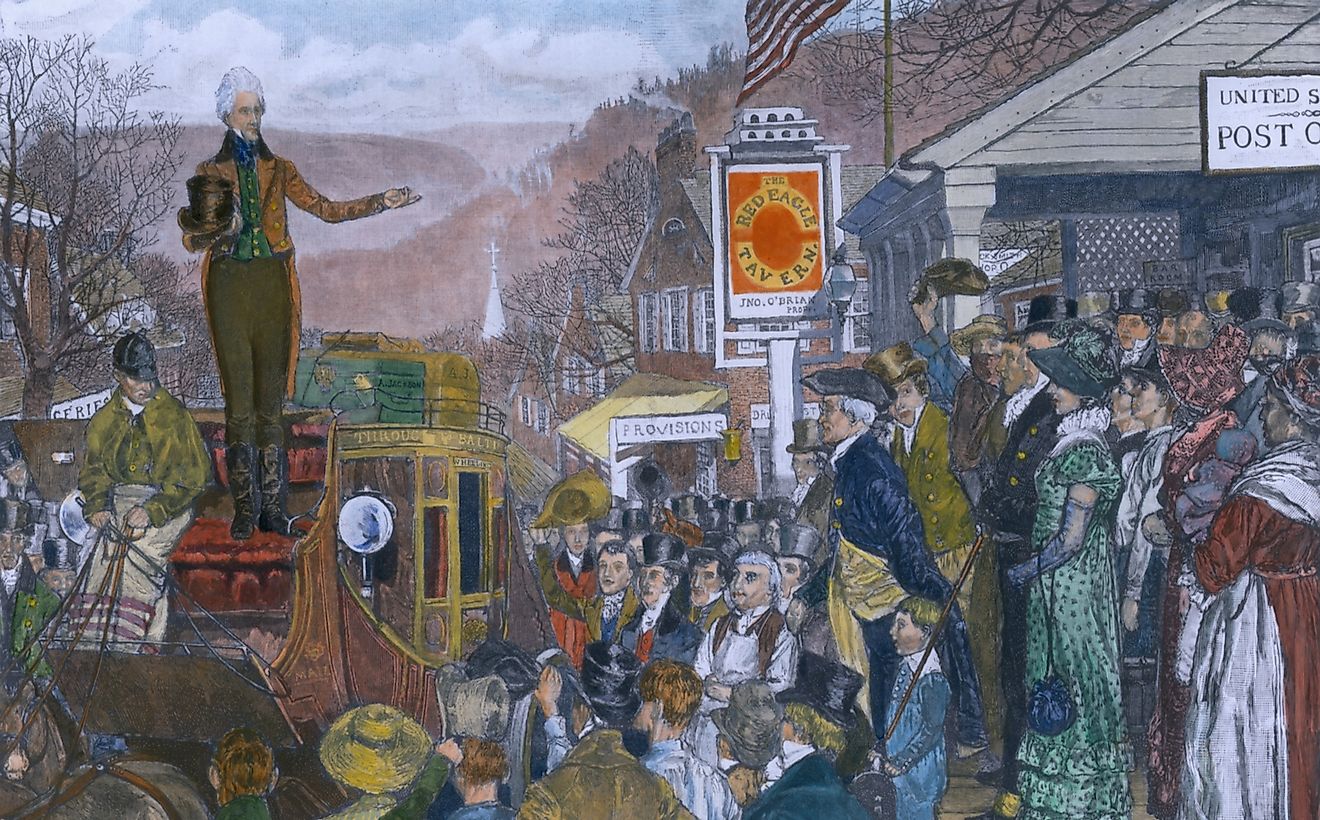What Is a Spoils System?

In the United States, the spoils system is the culture of firing and hiring federal employees when the presidential administration changes. The phrase was introduced in 1929, when Andrew Jackson replaced an unprecedented number of federal workers with people he promised office during his presidential campaign. Many people thought this method was corrupt, and the phrase “spoils system” was coined by U.S. senator William L. Marcy as an offensive term.
Intended Reforms
Andrew Jackson and the former president John Adams were political opponents, and most of the people in government had opposed his presidential bid. They blocked his core initiatives in what he interpreted as sabotage. He found a solution by firing people from key federal posts and replacing them with loyalists. Previous presidents, including George Washington, hired loyalists to influential positions, but under the new president, this kind of purging reached its peak. His supporters justified the move by claiming that some people had served in government since the administration of George Washington.
Denounced as Corruption
Jackson’s political opponents denounced the spoils system, though they were powerless against the president. Future president and Jackson’s ally Martin Van Buren is credited with proposing the policy. Unofficial reports suggested that more than 700 federal works were fired within the first year, a move that degraded the economy of Washington D.C. Though this was exaggerated, it was indeed a controversial policy. In 1832, Jackson’s political opponent Henry Clay assailed Senator William Marcy of New York accusing the pro-government loyalist of importing corruption vices from New York to Washington.
Reforming the Spoils System
Every successive president after Jackson appointed political supporters to key posts in federal government. Though it emerged as an effective method of curbing political sabotage and ensured the president’s initiatives were adequately supported, it was criticized for denying people jobs based on their political beliefs. During the Civil War, President Abraham Lincoln became annoyed by people camping in the White House, pleading for employment. The proposal to change the system was finally considered after a deranged and disappointed office seeker shot President James Garfield. The Pendleton Civil Service Reform Act was enacted to help protect federal employees and civil servants from the spoils system.
Origin of the Phrase
New York’s senator William L. Marcy coined the phrase while arguing with Henry Clay over the issue of corruption associated with the Jackson's ennumerous re-appointments. His supporters claimed that he had not intention of attaching the name to the practice when he said: “to the victor belong the spoils.”
Marcy emerged a hero after the War of 1812. He briefly served in the Senate before he became the governor of New York for twelve years. President James Polk appointed him the Secretary of War before President Franklin Pierce appointed him the Secretary of State. Regardless of his long political career and achievements, he is well known for the phrase “spoils system.”











